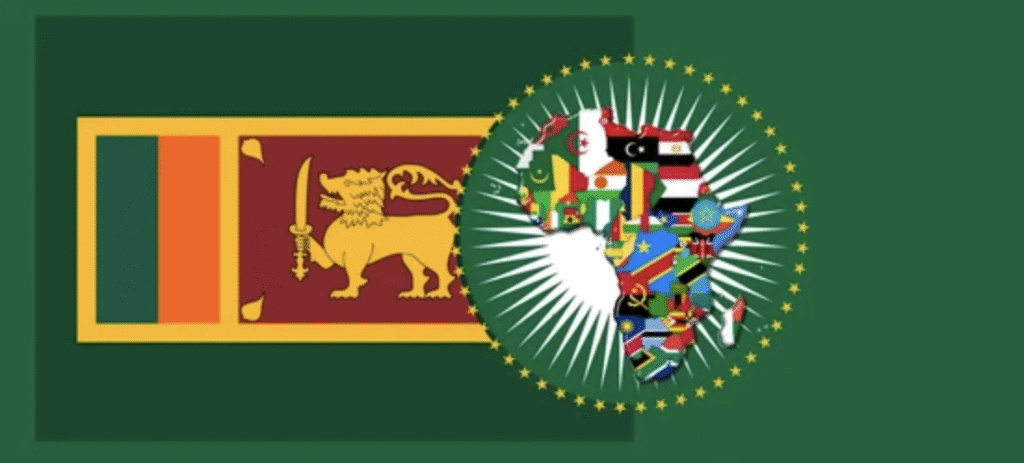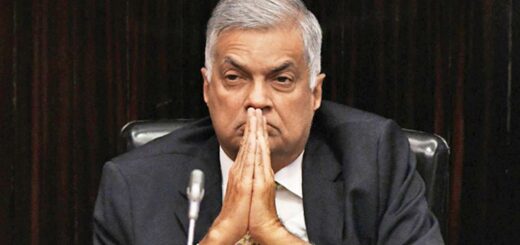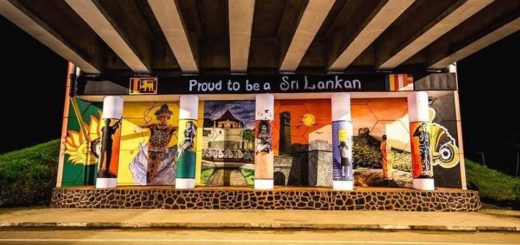Appeal to support Sri Lanka against mandate overreach by UNHRC creating precedents that impact African Union States

Subject: UNHRC Mandate Overreach and the Dangerous Precedent Using Sri Lanka
Excellency,
I write to respectfully draw the attention of the African Union to an issue of grave concern that extends far beyond Sri Lanka and directly impacts the sovereignty and security of all nations represented in the African Union.
- Precedent of UNHRC Overreach
Following the defeat of the Liberation Tigers of Tamil Eelam (LTTE) in May 2009—an armed terrorist group continuing to be proscribed in over 30 countries—the United Nations Human Rights Council (UNHRC) has consistently targeted Sri Lanka with intrusive mandates and politically motivated resolutions.
These actions have gone far beyond the Council’s founding mandate of impartial human rights promotion and protection.
Sri Lanka has been transformed into a precedent-setting case, where domestic counter-terrorism operations were redefined internationally as “war crimes,” and politically driven reports were used to interfere in sovereign governance.
It must be noted that during nearly three decades of LTTE terrorism, the UNHRC did not pass a single resolution to protect civilians, call for accountability from the LTTE, or even recognize the scale of atrocities committed. Yet immediately following the military defeat of the LTTE in May 2009, Sri Lanka became the target of a sustained campaign of resolutions, special sessions, and monitoring mandates — creating an unprecedented imbalance
This dangerous precedent can be replicated against any nation that successfully combats terrorism or resists externally driven agendas.
- Rights of Governments to Defend Against Terror
Under both international law and domestic constitution, sovereign governments have the right—and indeed the duty—to deploy their national armed forces to safeguard citizens against terrorism and separatism.
Sri Lanka’s Armed Forces, acting under the authority of its elected government, defeated the LTTE in 2009, thereby ending three decades of terror, mass killings, forced child recruitment, suicide bombings, and ethnic cleansing.
To now criminalize a State for protecting its citizens is to negate the very principles of state sovereignty enshrined in the UN Charter.
- Vendetta Driven by Political Agendas
The campaign against Sri Lanka within the UNHRC has been fueled by:
- Politically influenced reports(Darusman Panel, OISL, High Commissioners’ reports) lacking transparency and legal basis.
- Selective use of NGO submissions and diaspora lobbyinglinked to former terrorist networks.
- High Commissioners exceeding their mandate since 2009, issuing accusatory reports that are neither impartial nor evidence-based.
Instead of closing a painful chapter of terrorism, Sri Lanka has been subjected to continuous cycles of scrutiny and resolutions, wasting UN resources and undermining reconciliation.
After LTTE’s Defeat (2009–2025):
- 2009 (Special Session S-11/1):Adopted “Assistance to Sri Lanka” resolution — later politicized and weaponized.
- 2012 (19/2):Shifted focus to alleged “accountability” of Sri Lanka’s armed forces.
- 2013 (22/1):Intensified monitoring of Sri Lanka.
- 2014 (25/1):Authorized OHCHR “investigation” (OISL), unprecedentedly outside Sri Lanka.
- 2015 (30/1):Endorsed intrusive “hybrid accountability” model undermining sovereignty.
- 2017 (34/1):Extended monitoring mandate.
- 2019 (40/1):Renewed intrusive international monitoring.
- 2021 (46/1):Established so-called “evidence-gathering mechanism” (illegal precedent).
- 2022 (51/1):Further extended the evidence mechanism.
- 2024 (55/1):Renewed mandate again, showing institutional bias.
- 2025 (A/HRC/60/21):High Commissioner’s Report (Aug 2025 visit to Colombo) – making intrusive demands such as:
- Legalizing same-sex marriage(a demand far outside UNHRC’s human rights mandate).
- Expanding “universal jurisdiction” mechanisms to target Sri Lanka’s military and civilian leadership.
- Calling for a Tribunal against Sri Lankabased on unproven allegations.
Meanwhile, note: the United States, which initially spearheaded these resolutions, has since withdrawn from the UNHRC — describing it as a “cesspool of political bias.”
Total: 11 Resolutions in 16 years — all AFTER Sri Lanka defeated terrorism.
Not a single LTTE attack after May 2009 yet endless Resolutions
Sri Lanka continues to face an unprecedented campaign of punitive resolutions, setting a dangerous precedent that any Global South nation defeating terrorism would also face.
Vast UN resources are being wasted re-litigating a conflict that is long over, instead of addressing urgent global crises.
Most recently, in August 2025, the UN High Commissioner released A/HRC/60/21, and during his visit to Sri Lanka, went so far as to press the government to legalize same-sex marriage — a demand entirely unrelated to the country’s 30-year battle against terrorism. The report also repeated familiar allegations on accountability, calling to remove counter terrorism laws, change Sri Lanka’s constitution while ignoring the decades of terrorism unleashed by the LTTE. These demands represent a dangerous precedent of UN interference in internal social, cultural, and religious values — and are not limited to Sri Lanka. If unchallenged, the same intrusive conditions may be imposed on African and Global South nations, disregarding their traditions, constitutions, and the will of their people.
- Risks to Africa and the Global South
What has been imposed on Sri Lanka sets a clear precedent that will be later applied to African nations:
- If your governments attempt to eliminate terrorism, they too could be accused of “excesses.”
- If your militaries safeguard territorial integrity, they too could face selective “accountability resolutions.”
- If external actors seek geopolitical leverage, UNHRC could be used as the platform for pressure and intervention. It would be made legal using Sri Lanka precedent.
The African continent, with its proud history of anti-colonial struggle, must be vigilant that the same mechanisms used against Sri Lanka are not deployed against Africa.
- Call for African Union Support
Sri Lanka respectfully seeks the solidarity of the African Union in:
- Questioning the legalityof UNHRC’s mandate overreach and biased reports since 2009.
- Defending the right of sovereign nationsto protect themselves from terrorism without facing international vilification.
- Calling for an investigation into the UNHRC processon Sri Lanka since 2009, including the conduct of its High Commissioners.
- Standing with Sri Lanka at the UN/UNHRCas a matter of principle, knowing that defending one state today safeguards all states tomorrow.
Excellency,
Sri Lanka’s case is not Sri Lanka’s alone. It is a precedent that threatens every member of the Global South.
I urge the African Union to recognize the pattern, question the misuse of the UNHRC, and extend principled support to Sri Lanka.
Respectfully,
Shenali D Waduge
Sri Lanka
Political Analyst
Recommended Articles for Attachment
- “Sri Lanka’s 2009 Post-War to Present — UN Precedents & Bias in International Injustice”
Offers a comprehensive overview of how UNHRC actions following the LTTE’s defeat have diverged from mandates and become systematically biased.
- “UN-UNHRC, Please Answer Sri Lanka”
Highlights UN silence during three decades of terrorism and its shift to scrutiny only post-2009, underscoring the Selectivity problem.
https://www.shenaliwaduge.com/un-unhrc-please-answer-sri-lanka/
- “Sri Lanka’s Armed Forces must not fall for this trap of story-telling & confessions for compensation!”
Critically examines Truth Commission models and warns against forced narratives that erase context, favoring politically motivated outcomes instead.
- “Sri Lanka’s traditional friends in UNHRC must help secure closure of resolutions against Sri Lanka”
Recommends diplomatic alliances (with nations like China, Pakistan, Russia, Cuba) to push back against intrusive and continuous UNHRC actions.
- Non-Binding but Deadly: How UNHRC Resolution A/HRC/60/21 (2025) Could Destroy Sri Lanka’s Sovereignty”
Analyzes the potential impact of the latest UNHRC resolution on Sri Lanka’s sovereignty and security.
- “UNHRC Report on Sri Lanka (A/HRC/60/21.2025): Mandate Abuse & High Commissioners’ Overreach Exposed”
Critiques the UNHRC’s recent report on Sri Lanka, highlighting issues of mandate abuse and overreach by High Commissioners.
- “Sri Lanka vs. UNHRC: How High Commissioners Abused Mandates, Exceeded Authority, and Politicized Human Rights”
Discusses how UNHRC High Commissioners have overstepped their authority and politicized human rights issues concerning Sri Lanka.
- “Protect Non-Aligned Movement Sovereignty Against UNHRC Mandate Overreach”
Appeals to the Non-Aligned Movement to protect sovereignty against UNHRC’s overreach, using Sri Lanka as a case study.
- “The Unfinished War Against Sri Lanka’s Defenders: From Victory to Vilification”
Examines the ongoing challenges faced by Sri Lanka’s defenders post-conflict, focusing on international scrutiny and accountability.
- “Non-Binding but Deadly: How UNHRC Resolution A/HRC/60/21 (2025) Could Destroy Sri Lanka’s Sovereignty”
Analyzes the potential impact of the latest UNHRC resolution on Sri Lanka’s sovereignty and security.







